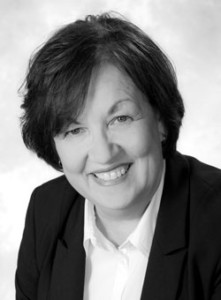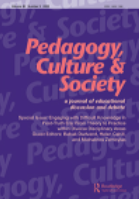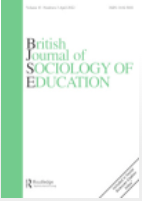Associate Professor Glenda McGregor is passionate about helping young people find their way through education, believing a sound education provides all sorts of future benefits including wellness, employability and being able to participate fully in a democracy.
 Glenda is an experienced educator with over 20 years’ experience working in secondary schools in Brisbane and Ipswich. She came to Griffith in 2008 as a full time academic, after completing a PhD in youth sociology. She is interested in the ways young people are viewed in society and how that affects their experiences of schooling.
Glenda is an experienced educator with over 20 years’ experience working in secondary schools in Brisbane and Ipswich. She came to Griffith in 2008 as a full time academic, after completing a PhD in youth sociology. She is interested in the ways young people are viewed in society and how that affects their experiences of schooling.
Glenda says:
“During the last couple of decades with the explosion in technology, the experience of youth has become much more complex in terms of sources of information. Teachers are no longer the fountains of all knowledge and wisdom. There’s been a re-positioning in access to knowledge.”
Glenda’s research is strongly focused on issues of curriculum, pedagogy, and schooling cultures and how they relate to educational dis/engagement. In 2019, she was awarded an ARC Linkage Grant, exploring the conditions and needs of teachers in flexible and non-traditional schools. This research will add to the growing body academic literature about this schooling sector.
This is a growing sector, with key tangible impacts now being seen at a policy level.
“There is a growing demand for a different type of schooling for young people, who may be disadvantaged or suffering from mental health issues and trauma. If kids aren’t thriving, they are likely to either drop out or be expelled. As interest has evolved, so too has the interest of Government Education Departments.”
The ACT Education Directorate, for example, has implemented a complete systematic reform as a result of research completed by Glenda and her Griffith colleagues, entitled the Continuum of Educational Support.
Glenda says:
“Donna Pendergast, Jeanne Allen, Michelle Ronksley-Pavia and myself worked with the ACT Education Directorate to craft a whole-of-school model for supporting all students. The premise is that any young person might disengage at some point in their educational journey. The Model encompasses structures of support from Year 7 to 10, including flexible pathways whilst still being at school and flexible learning spaces at the school. The final stage for young people needing the most support was an external site with intensive wrap-around educational, emotional and social support structures. Systemic impact is demonstrated in the fact that the ACT has implemented this model and is still supporting it in the budget.”
Glenda is passionate and dedicated to her work because she has a lot of empathy for young people, who have no power over their lives and are subject to the powers and regulations of adults around them. Their needs inspire her work.
She says:
“Your whole quality of life is shaped by access to a decent education. If a significant proportion of young people do not have this, we are perpetuating a cycle of inequality and unfairness. Education is a way to break the generational cycle of poverty and unfairness.”
Glenda is a board member of the Australian Association for Inclusive Education and will be apart of the Doing Schools Differently Conference 2022. To read more about Glenda’s important collaborative work and the impact it is having please see:
 Community solutions for schooling engagement: Two Australian case studies
Community solutions for schooling engagement: Two Australian case studies

 Counter-narratives that challenge neo-liberal discourses of schooling ‘disengagement’: youth professionals informing the work of teachers
Counter-narratives that challenge neo-liberal discourses of schooling ‘disengagement’: youth professionals informing the work of teachers
